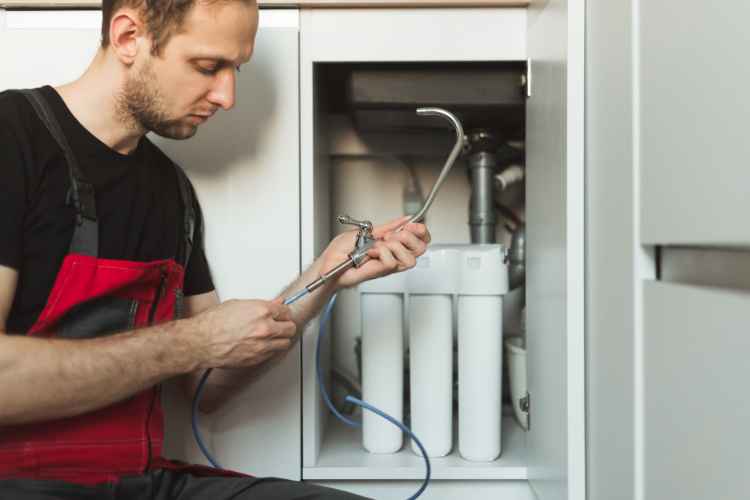Are you tired of dealing with hard water in your home? If so, it may be time to invest in a water softener. This will make your daily tasks easier and save you money in the long run by preventing damage to your appliances and plumbing. But with so many options on the market, how do you know which water softener is the best for your home? Keep reading to learn everything you need to know before making a purchase.
What is a Water Softener?
A water softener is a device that removes minerals, such as calcium and magnesium, from hard water. Hard water can cause various issues in your home, including buildup on fixtures and appliances, dry skin and hair, and even decreased efficiency of cleaning products.
Types of Water Softeners
There are two main types of water softeners: salt-based and salt-free. Salt-based water softeners use ion exchange technology to remove minerals from water, while salt-free softeners use a process known as descaling. The type of water softener you choose will largely depend on your needs and preferences.
Salt-based softeners are typically more effective at removing minerals, but they require salt pellets or blocks for regeneration. On the other hand, salt-free softeners do not require any maintenance or use of salt, but they may not be as effective for heavily hard water.
Consider Your Water Hardness
Before purchasing a water softener, it’s important to know the hardness level of your water. You can test this with a home testing kit or have a professional do it. This will help you determine the size and capacity of the water softener you need.
If your water is heavily hard, a salt-based system may be your best option. However, if your water is only slightly hard or you are concerned about the use of salt, a salt-free system may suffice.
Size and Capacity
The size and capacity of a water softener refer to how much water it can handle before regenerating. This is an important factor to consider, as a system that is too small for your household will not be efficient in removing minerals from your water.
To determine your home’s right size and capacity, consider the number of people in your household and their average water usage. A larger family with higher water consumption will require a bigger system than a single person living in a small apartment.
Additional Features
Some water softeners come with additional features that may benefit your specific needs. For example, some systems have a built-in sediment filter to remove larger particles from your water. Others may have adjustable settings for regeneration frequency or the ability to connect to a smartphone app for remote monitoring and control. Consider what features are important to you and choose a water softener that meets those needs.
Installation and Maintenance
Most water softeners require professional installation, so it’s important to factor this into your budget. Additionally, they will require regular maintenance, such as adding salt or descaling the system. Review reviews or ask for recommendations to find a reliable and reputable company for installation and ongoing maintenance.
Investing in a water softener may seem like a big decision, but it can greatly improve the quality of your daily life and save you money in the long run. By considering factors such as type, size, and features and ensuring proper installation and maintenance, you can find the best water softener for your home. Say goodbye to hard water and hello to soft, clean water for all your household needs. So what are you waiting for? Start researching and find the perfect water softener for your home today!


